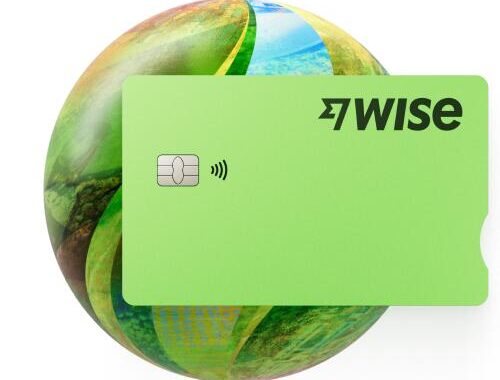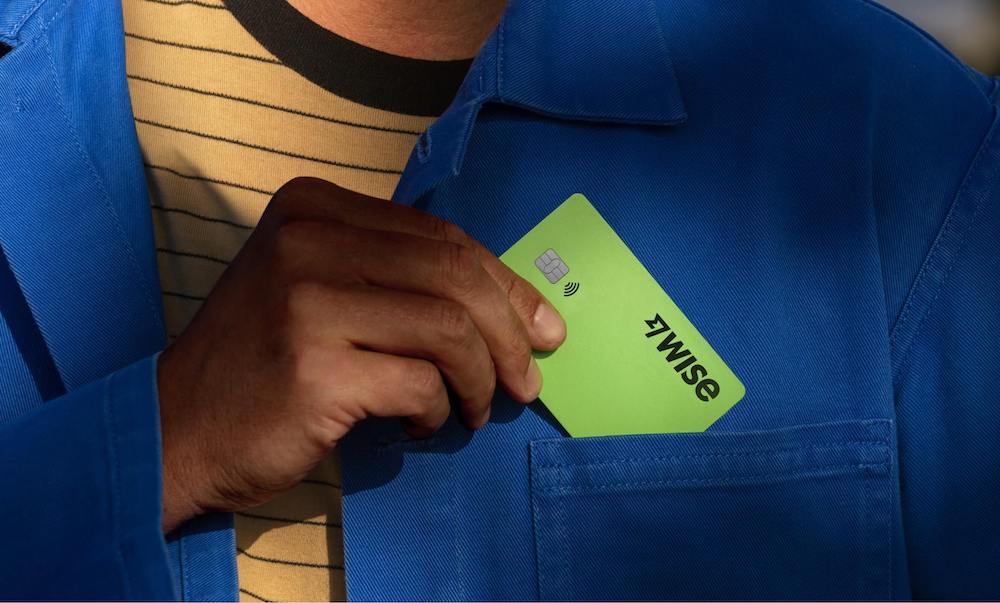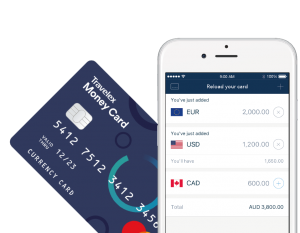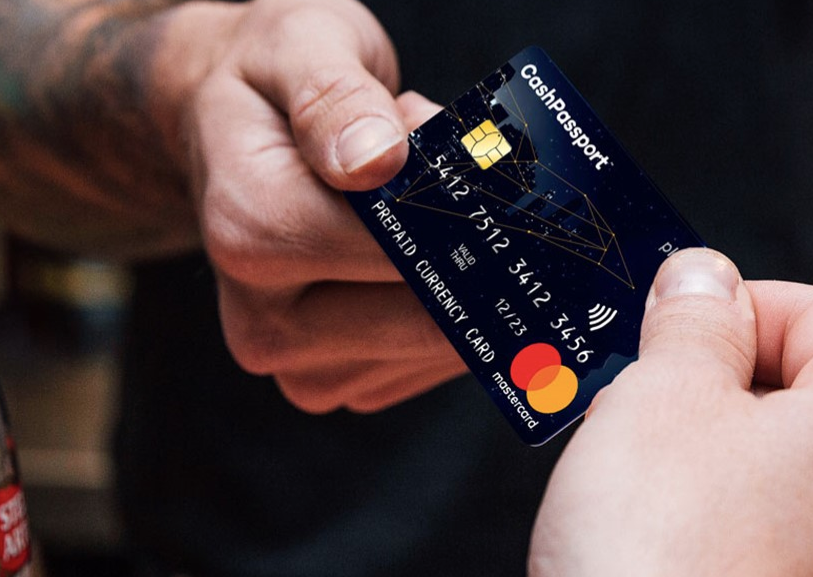The 5 Best Travel Cards for New Zealanders to use in Japan
Planning a trip to Japan? A travel card can make it easier and more convenient to spend internationally - and cut your costs, too. Pick the right travel card and you could get lower fees when you spend in a foreign currency, a better exchange rate, or rewards and benefits that help you do more.
Let’s dive into a deeper look at the best travel cards for New Zealanders to use in Japan.
- Wise - our pick for travel debit card for Japan
- Travelex Money Card - prepaid card for Japan
- Cash Passport - prepaid card option for Japan
- hotpoints® World Mastercard - travel rewards credit card for Japan
- American Express Airpoints Card - travel credit card option for Japan
Wise - our pick for travel debit card for Japan
If you’re thinking of a travel debit card to make spending in Japan easier, check out the Wise international debit card. You can open your Wise account online or with the Wise app, to hold and exchange 50+ currencies, including JPY easily and with the mid-market exchange rate.
There’s a one time fee of 14 NZD to get your Wise card, with no monthly charges, no inactivity fee and no minimum balance to worry about. Just top up in NZD, and either switch to JPY using the Wise app, or just let the card convert for you at the point of payment. In either case you’ll get the mid-market exchange rate and low fees from 0.43%.
Click here read more on how Wise works
Click here to see the full list of cards and how Wise compares
What are travel cards?
A travel money card is a card that’s been optimised for use when spending and making cash withdrawals while you’ve overseas.
Travel money cards include both debit cards or credit cards, with features and fees which can vary quite widely. If you’re in the market for a debit card for your next trip, you may benefit from a specialist card which lets you hold multiple currencies, with low fees and - often - no ongoing charges. If you’d like to spread the cost of your travel out over a few months you might prefer to get a travel credit card. In this case there may be fees or interest charges to pay, but some travel cards also offer opportunities to access rewards and travel perks like lounge access.
Whichever type of card suits your needs, you can use your travel card to tap and pay in stores when you’re overseas, and to make cash withdrawals in local currency wherever you are. Let’s look at some good cards to consider for your trip, next.
Related: Everything you need to know about International Debit Cards
4 travel money cards for Japan compared
To start off, let’s look at 4 different travel cards offered for New Zealanders, and some of the key fees you should know about. We’ll look at these cards in more detail later.
| Provider | Type | Delivery/order fee | Japan ATM fee | Interest rate | POS fees | Exchange rate |
| Wise | Debit | 15 NZD standard card fee
Optional express delivery from 17.4 NZD |
Up to 2 withdrawals, to the value of 350 NZD free per month
1.75% + 1.5 NZD after that |
Not applicable | Free to spend a currency you hold | Mid-market exchange rate |
| Cash Passport | Debit | No fee to get card (load fees may apply based on top up method) | 300 JPY | Not applicable | - Free to spend a currency you hold
- 5.95% conversion fee when you spend a currency you don’t have in your account |
- Exchange rates may include a variable margin when exchanging between currencies in your account balance
- Mastercard rate + 5.95% when spending a currency you don’t hold in your account |
| Travelex | Debit | Fee depends on the outlet you buy from | No fee | Not applicable | - Free to spend a currency you hold
- 4% conversion fee to spend a currency you don’t have in your account |
- Exchange rates may include a variable margin when exchanging between currencies in your account balance
- Mastercard rate + 4% when spending a currency you don’t hold in your account |
| American Express Airpoints
|
Credit | No fee | 5 NZD cash advance fee + 22.95%p.a interest which accrues immediately | 22.95%p.a. | 2.5% currency conversion fee applies | Amex rate + 2.5% currency conversion fee |
In general, travel debit cards can come with lower overall fees, while travel credit cards offer better reward earning opportunities. Which card is best for you will depend on your personal preferences and how you like to manage your money. We’ll walk through each of these cards in more detail in a moment, so you can see if any suit your needs.
What are the different types of travel cards?
The best choice for you depends on what you'll be using it for, whether that's taking out cash, making card purchases or transferring Japanese Yen to a local bank account.
Broadly speaking, you can split travel cards down into 3 different types - each of which have their own distinct features, advantages and drawbacks:
Let's have a look at our top picks for the three best travel cards for New Zealanders heading to Japan.
Travel Debit Cards
Travel debit cards are generally offered through specialist online services, and linked to multi-currency accounts you can use to hold and exchange all the currencies you’ll need for your trip to Japan - and for future travel elsewhere, too. As a debit card you won’t need to worry about interest charges - just top up your account with the money you want to spend while you’re away, and use your card as you would at home, for convenient payments and withdrawals.
Debit cards offer the convenience of a credit card, but work differently. They draw money directly from your bank account when you make a purchase. It's designed for everyday money transactions and means that you're not accumulating debt.
A debit card could make it easier to stick to your travel budget, because you can't overdraw money from your account. Some travel debit cards also let you buy the currency you need for travel in advance, so you can convert when the rates are good, and hold a balance until you travel.
Generally, it makes sense to have the combination of a travel debit and travel credit card for safety, flexibility and convenience on your trip. That way you should always have easy access to JPY to pay your way while you’re in Japan.
Wise - travel debit card for Japan
The Wise travel debit card is linked to a multi-currency Wise account which can hold 50+ currencies - making it a great pick for your travel to Japan, and wherever else you might venture. Ordering a Wise card is easy and you can set up an account, get verified and add a balance all using nothing more than your phone. You’ll have access to a virtual card for online and mobile payments as soon as you’ve ordered your physical card, and your physical card will arrive in the post soon after.
Wise uses the mid-market exchange rate for all currency conversion, with low fees from 0.43%. There’s no foreign transaction fee to pay, and it’s free to spend any currency you have in your account - plus you’ll get some fee free ATM withdrawals every month for those times only cash will do.
Wise pros:
- Hold and exchange 50+ currencies with the mid-market exchange rate
- Convert currencies in advance of travel, or let the card convert at the point of payment
- Free to spend any currency you hold in your account
- No ongoing charges, inactivity fees or minimum balance requirements
- Low, transparent fees based on how you use your card
Wise cons:
- Variable currency conversion fees apply
- Some ATM charges apply once you’ve exhausted your fee free limits
Prepaid Travel Cards
For prepaid cards, you're able to load the card with a set amount of money in the currencies you need. Ideally you do this before your trip, but often you can reload them as well.
Most prepaid travel cards allow for multiple currencies to be loaded onto the card. So it's important to know what currency you'll be using on your travels. Airlines also offer prepaid cards so the money you spend can earn you reward points.
With prepaid travel cards you need to be careful. They can have numerous fees and charges, which can make it more expensive than other options. But if you're organised and travelling to multiple cities a prepaid travel card is a good option.
Travelex Money card - prepaid card for Japan
The Travelex card can be used to hold, spend and withdraw 9 currencies, including JPY. That means you can top up your card in NZD and switch over to JPY easily before you travel. It’s useful to know that a conversion fee of 4% will apply if you don’t have the right balance to cover your spending while you’re in Japan.
The Travelex card has no ATM fee when you make a cash withdrawal, and it’s also handy because you can pick one up in minutes in a Travelex store. Just order online to get a travel card for next day collection, or call into a store with your ID and proof of address, to get one there and then.
Pros:
- Supports 8 currencies you can manage and load online
- Order online or in person, or walk in and collect in a store
- No Travelex international ATM fees and no transaction fees to spend currencies you hold
- Preferential foreign exchange fees when you convert currencies in your account
Cons:
- Fees apply if you reload the card in New Zealand dollars
- Inactivity fees apply
- 4% fee if you’re spending an unsupported currency, or if you don’t hold enough balance in the currency you’re using
Cash Passport - prepaid card for Japan
Order your Cash Passport before you travel, to hold, spend and withdraw 10 currencies, including JPY. Just add money to your card in NZD and switch over to JPY before you travel. If you don’t hold the balance you need for your overseas spending, a conversion fee of 5.95% will apply.
The Cash Passport is issued on the Mastercard network for global acceptance - and you can easily order your card online, or pick up in person through select retailers.
Pros and cons of using prepaid travel cards in Japan
Pros:
- Order online or pick up in store, depending on your preference
- Add funds in NZD and convert to the currency you need in advance of travel
- Not linked to your normal NZD account, adding a layer of security
- You may be able to top up your account digitally while you’re away
- Multi-currency holding options
Cons:
- Not all cards support all currencies - fees can apply when spending an unsupported currency
- Inactivity and top up fees can apply
How to choose the best travel prepaid card for Japan?
Travel prepaid cards can have foreign transaction fees when you spend in a currency you don’t hold in your account - either because your balance doesn’t cover the spending, or because the card can’t hold the specific currency. As these foreign transaction fees push up overall costs significantly, it’s useful to look for a prepaid travel card which can support JPY if you’re about to travel to Japan, to make your money go further when you’re there.
Is there a spending limit with a prepaid card in Japan?
Prepaid cards do typically have spending limits, which can vary depending on the provider and the types of spending. You may find you have a limit to the amount you can withdraw at an ATM for example, as well as a limit to the value of POS payments you can make daily. Check your preferred card’s terms and conditions to learn more.
Travel Credit Cards
Travel credit cards can give you longer to pay back what you've spent - but there will be interest to pay if you don’t clear your bill promptly.
The main advantage with credit cards are the reward points you get in return for your customer loyalty when you spend. This can mean getting cashback, or using your points to offset fees and future purchases, or even to trade in for hotel rooms or flights.
Credit cards are great to use for car hire, restaurants and accommodation - larger expenses that are easier for you to pay back over time. Some services only take credit cards to hold purchases so they can definitely be handy while you're travelling.
If you’re looking for a way to spread the cost of your trip over a few months, and don’t mind paying interest charges, a travel credit card could be the right pick for you. There are quite a few different travel optimised credit cards available for customers in New Zealand, which may offer opportunities to earn rewards when you spend and travel, or travel perks like free insurance or lounge access.
Features and fees do vary widely, and eligibility requirements are usually in place, including a credit check - so do compare a few before you pick one. We’ve got the lowdown on one popular travel credit card coming up, to kick off your research.
hotpoints® World Mastercard - travel rewards credit card for Japan
Pros:
- Earn points as you spend on your card, which you can redeem later
- Get 120 days travel insurance, and some lounge access perks
- Spread the costs of your purchases and travel
Cons:
- 285 NZD annual fee plus variable interest if you don’t pay your bill in full
- 1.95% foreign transaction fee when you spend or withdraw in a foreign currency
- Higher rates of interest for cash advance - including if you make an ATM withdrawal
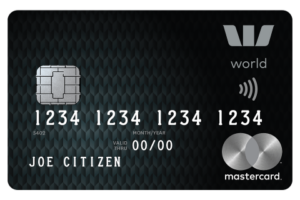
American Express Airpoints - travel credit card for Japan
Airpoints is the Air New Zealand loyalty and rewards programme - and includes ways to boost your points with credit card spending. The American Express Airpoints Card has no annual fee and allows you to earn one Airpoints dollar for every 100 NZD spend. You can then use your Airpoints dollars to fund your travel spending, or to shop online at the Airpoints store.
If you’d rather earn rewards faster, there are also different Airpoints cards which come with annual fees but which accrue points at a higher rate. Just bear in mind that overseas spending comes with a 2.5% foreign transaction fee, which can push up costs. Weigh up the benefits you’ll get against the potential fees before you sign up.
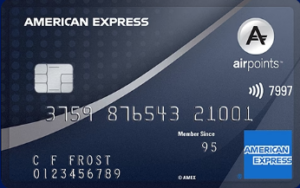
Pros and cons of using credit cards in Japan
Pros:
- Convenient and easy to use
- Earn rewards as you spend, such as air miles and cash back
- Issued on globally accepted payment networks
- Variety of different cards available depending on your personal needs
- Safe to use, often with extra protections on spending
Cons:
- Interest charges apply if you don’t repay your bill in full every period
- Other fees can apply including annual fees and foreign transaction fees
How to choose the best travel credit card for Japan?
Getting the best travel credit card for Japan will be a question of your personal preferences and needs. One thing to watch out for is the fees you’ll pay to unlock travel credit card benefits. Look at the annual fees, interest and any foreign transaction fees in particular, and weigh these costs against the reward earning opportunities to make sure you get the best balance for your spending.
Pros and cons of travel debit cards
Travel debit cards can certainly be a handy tool when you travel or shop internationally. But they’re not perfect and they’re not your only option. If you’re not sure what type of card will suit you, check out these pros and cons of travel debit cards to help you decide:
Pros:
- Many travel debit cards come with lower overall foreign currency costs, or easy ways to earn rewards as you spend overseas
- Some cards have linked multi-currency accounts you can use to hold major currencies
- Easy to budget with a debit card - no late fees, penalties or overdraft charges, just spend to the card balance
- Most cards let you manage them on an app, convenient when you’re overseas
Cons:
- Different cards have their own features, and some can come with quite high fees for certain transaction types
- Not all cards support all currencies - check the currencies you need are supported before you order
- You may pay an upfront fee to get your card
- Debit cards aren’t always accepted - if you’re paying a deposit for example, a credit card may be required
Conclusion
Dedicated travel cards are a good way to spend and make cash withdrawals in Japan. By picking a card on a globally recognised network you’ll be able to tap and pay - or make cash withdrawals in Japan - just as easily as you would at home. And, depending on which card you pick, you may get lower overall costs or options to earn rewards and air miles as you spend.
Compare a few travel cards for Japan before you pick the right one for you, including the Wise card if you’re thinking of a multi-currency debit card option, or the Travelex card if you need a prepaid card with no ATM fees to pay.
FAQ - The Best Travel Cards to Use in Japan
What currency do they use in Japan?
The official currency in Japan is Japanese Yen. Before you travel, plan how best to manage your travel money, which could be to hold a little cash, and have a travel debit card or credit card for spending and withdrawals once you arrive.
What are the best travel cards to use in Japan?
There’s no single best travel card for Japan. Which works best for you will depend on whether you’re looking to hold a currency balance, cut your overall costs, earn more points, or access other account features like local currency receiving accounts. The good news is that there are plenty of options on the New Zealand market to pick from - use this guide as a starting point to find the right one for you.
Can I exchange cash at the airport?
It’s usually possible to exchange cash at the airport - but you might find you pay a higher overall fee, including a currency exchange markup, if you do. Passing trade and a captive market usually mean airport currency exchange kiosks have pretty poor rates compared to alternatives - you may find you’re better off withdrawing some cash in the airport you arrive into, or getting a travel debit card to see you through your travel.
Can you withdraw cash with a credit card in Japan?
You can generally withdraw cash with a credit card in Japan, at any ATM where your card’s network is accepted. However, bear in mind that fees may apply, including charges from your card issuer, and from the ATM operator. Using a travel debit card, such as the Wise card, which has some fee free ATM withdrawals every month, can often be cheaper than using a credit card as you’ll avoid cash advance and interest charges
Do I need a card for overseas trips?
It’s a good idea to have a card for overseas trips so you don’t need to carry a large amount of cash with you when you head overseas. Choosing a specialist travel debit card can also mean you cut the costs of currency exchange and pay less overall for your foreign currency spending.

